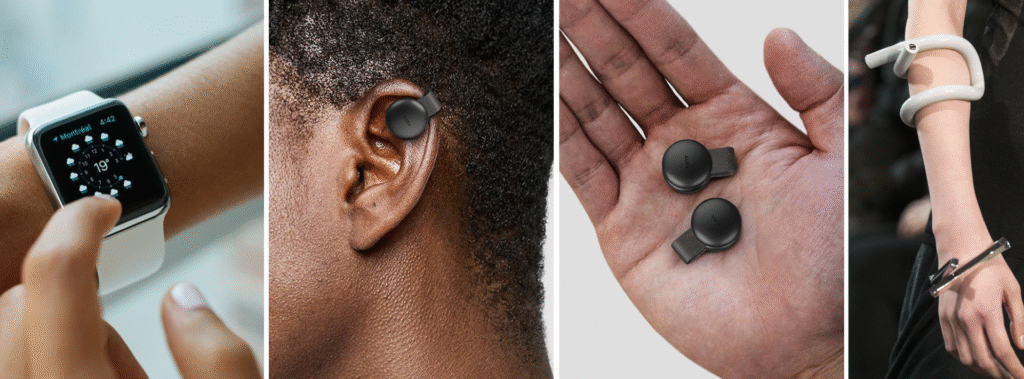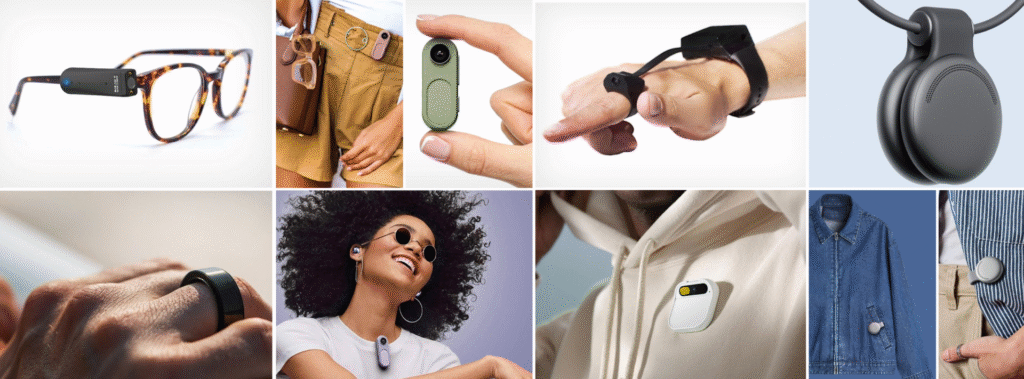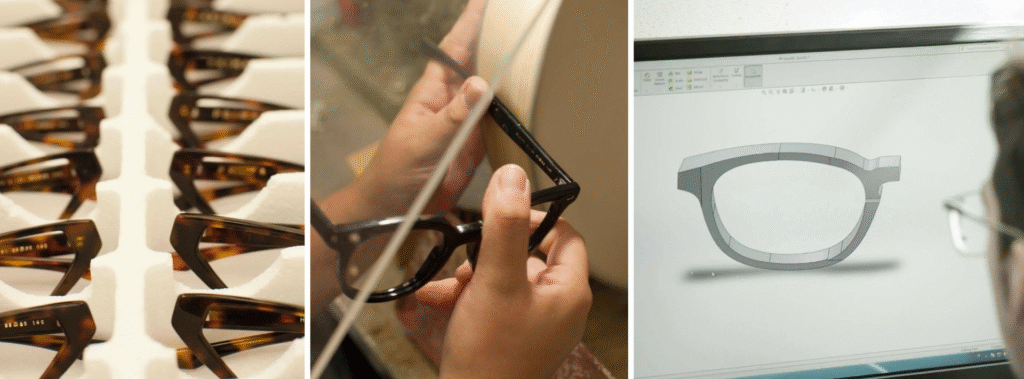Discover how fashion brands can balance privacy and convenience in wearable technology. Deepwear helps create ethical, compliant, and human-centered smart fashion solutions.
In our previous blog, The Ethical Dilemmas of AI-Powered Wearables, we explored how fashion’s embrace of artificial intelligence brings both creativity and ethical complexity. This time, we’re zooming in on one of the most urgent questions at the heart of that transformation: the balance between privacy and convenience.
People have already surrendered large parts of their private lives online through social media, health apps, and connected devices that quietly collect data in the background. Every heartbeat, step, and even sleeping pattern can now be tracked, stored, or shared. The appeal is obvious. AI-enabled smart devices promise a more personalized, efficient, and connected lifestyle. But as convenience rises, so does exposure — and nowhere is this more visible than in devices designed to monitor the body itself.
In this blog we cover:
- The ethical and privacy challenges shaping the future of wearable technology.
- How convenience-driven design can unintentionally compromise user autonomy.
- Practical design principles for brands aiming to protect data integrity.
Deepwear’s approach to guiding clients through privacy-aware production and localized compliance

The Hidden Costs of Seamlessness
The most convenient technologies are also the least visible — collecting, syncing, and storing data without friction or interruption. But that frictionless design hides complexity.
To make wearables smarter, companies gather massive volumes of data: location, heart rate, sleep cycles, reproductive health, posture, voice commands, and even stress levels. Each new “feature” creates another point of vulnerability.
Many users experience privacy fatigue; endlessly clicking “agree” without reading terms that can run longer than a novel. Others rely on the assumption that data is anonymized. In reality, so-called anonymous health data can often be re-identified through cross-referencing with other databases.The illusion of safety is often just that — an illusion.
Why the Trade-Off Exists
The more seamless and intelligent a device becomes, the more data it requires to function. Every predictive alert or personalized suggestion is powered by analysis of prior behaviour. That’s the paradox: the systems that feel most private are often the most intrusive.
Users are not only giving up information but also control over interpretation. Once data leaves the device, it enters ecosystems governed by opaque algorithms, third-party vendors, or cloud agreements that most consumers never even see.
And for brands that depend on these ecosystems — from luxury fashion houses integrating health features to fitness startups developing smart textiles — this opacity becomes a reputational risk.

Designing for Privacy-First Convenience
Deepwear believes that convenience and privacy do not have to be opposing forces. Responsible design and supply-chain alignment can create technology that serves both innovation and integrity.
For brands, product developers, and manufacturers, this balance starts long before a wearable reaches the market:
1. Minimize Data Collection: Gather only the data essential to the product’s function. For instance, a smart fitness band can track exertion levels without storing exact GPS routes.
2. Prioritize On-Device Processing: Keep sensitive computations — such as reproductive or biometric data — local to the device. Advances in federated learning allow AI systems to improve without sending raw data to external servers.
3. Short Retention, Secure Deletion: Establish strict retention policies. Offer users clear options to delete data permanently, not just deactivate accounts.
4. Transparency Beyond the Fine Print: Replace hidden clauses with concise, human-readable disclosures. Explain in plain language: what is collected, why it’s collected, and who can see it.
5. Design for Bystanders: Especially for smart glasses and voice-activated devices — ensure visible cues, clear recording indicators, or opt-out functions in shared environments.
6. Plan for Jurisdictional Risk: Data protection laws differ vastly across countries. In regions where bodily autonomy or digital privacy is weak, ensure sensitive features can be disabled or stored offline.
These principles transform privacy from a compliance checkbox into a design ethic; one that reinforces user trust, brand loyalty, and long-term credibility.

Deepwear’s Role: From Ethical Concept to Responsible Production
At Deepwear, our mission goes beyond sourcing and production.We help brands translate values into viable products. That means supporting clients through every stage of innovation, from concept to compliance.
As wearable technology and smart fashion continue to converge, the ethical questions brands face aren’t just about aesthetics or performance, they’re about responsibility, traceability, and trust.
Here’s how Deepwear helps ensure those principles are built into every collaboration:
1. Responsible Vendor Alignment: We work only with audited and compliant factories that meet international labor, safety, and environmental standards. For wearable products, that extends to data integrity — ensuring that partner manufacturers follow confidentiality and IP protection protocols throughout the production process.
Looking for verified factories that meet both ethical and data standards? Explore Deepwear’s network of trusted manufacturers
2. Design Consultation for Risk Awareness: Our consulting process doesn’t just address material quality or production feasibility. We help clients anticipate regulatory and ethical implications, advising on design decisions that minimize data exposure and align with global privacy frameworks.
3. Global Presence, Local Insight: With 17 international offices and an extensive network of trusted partners, Deepwear offers brands the benefit of localized expertise. Whether manufacturing in Vietnam, India, Thailand, or Europe, our teams are well-versed in each region’s laws, cultural norms, and privacy regulations — helping brands make informed decisions about how their products function in specific markets.
This localized understanding ensures that a feature acceptable in one country isn’t problematic in another, allowing brands to operate responsibly while still reaching a global audience.

4. Sustainability Meets Digital Responsibility: We approach ethical tech through a sustainability lens. The same standards we apply to eco-friendly fabrics, fair wages, and circular production also guide how we view data stewardship — as part of a holistic responsibility to people and planet.
5. Ongoing Education and Partnership: Deepwear doesn’t stop at delivery. Through long-term collaborations, we help brands stay ahead of regulatory shifts and emerging technologies, ensuring they can adapt with confidence as wearable innovation accelerates.
For us, responsible production isn’t a single action; it’s an ongoing dialogue between innovation, ethics, and craftsmanship.
How Can Fashion Brands Balance Privacy and Convenience in Wearable Tech?
Fashion brands can balance privacy and convenience by limiting unnecessary data collection, prioritizing on-device processing, and applying transparency-by-design principles. Deepwear helps brands integrate ethical innovation and localized compliance throughout their wearable production process.
The Future of Responsible Wearables
As wearable technology continues to blur the line between convenience and surveillance, one truth remains: trust is the ultimate currency. Consumers are becoming more aware of how much of their private lives are being traded for comfort or connectivity, and they expect brands to protect them, not profit from them. The future of wearables will depend on how responsibly brands handle that trust. Designing for convenience no longer means adding more features, it also means creating products that respect privacy, dignity, and diversity across every market.
Our role is to help brands build the systems, partnerships, and safeguards that ensure technology serves humanity, not the other way around.
Because privacy and progress don’t have to compete — they can coexist, beautifully, when designed with care.

Ready to innovate responsibly in the era of smart fashion? Book a strategy call with Deepwear’s ethical innovation team or explore our global wearable sourcing and compliance solutions today.